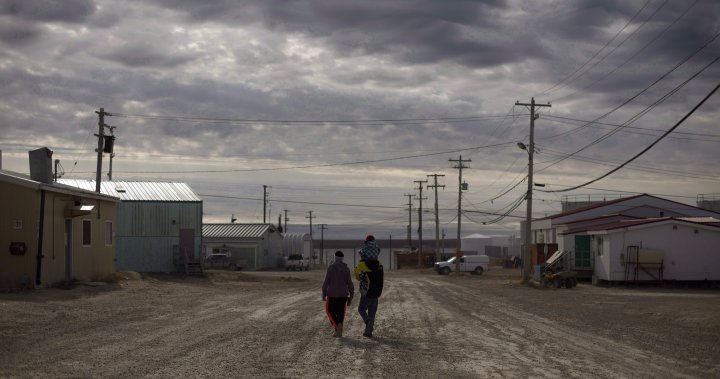Basic information about young people who have used government services in Nunavut isn’t being tracked because of “complacency and a lack of accountability,” says the annual report from the territory’s representative for children and youth.
Jane Bates says her 2019-2020 report needed data from government departments to create baseline information on people under 19 that could help shape policies and legislation.
In March, her office sent questions to the departments of Family Services, Health, Education and Justice about where, why and how youth were getting access to services.
She says what she got back, for the most part, was incomplete.
“The majority of information we requested is not tracked or was not provided by departments. In some cases, inaccurate information was provided by the department’s own admission,” Bates writes in the report.
“Some service providers are not following their own department’s legislation and supervisors are not enforcing corrective actions,” she writes. “In bringing this to the attention of directors and deputy ministers, there appears to be complacency and a lack of accountability about this from the top down.
“There is no recognition of the problem, no commitment or follow through for training and adherence to quality assurance measures, and no support to hold those responsible accountable.”

Family Services said 560 young people used its services last year, but the department did not have available data on their ages or what region of Nunavut they lived in.
The Justice Department did not provide data on how many and what type of child and youth matters were before the courts, or on the number of convictions in crimes against youth last year.
In an email to The Canadian Press, Mark Witzaney, policy and planning director with the Department of Justice, said some of the information requested by Bates was “not consistent with how this information is reported nationally or through (Statistics) Canada.”
“We did not have the ability to do the detailed statistical breakdown and analysis requested by the representative for children and youth by their deadline,” Witzaney wrote.
Health provided the least data of the four departments. It did not provide, among other things, the number of young people who used its services or the number of suicides by age in the last year.
A spokesperson for Health said the department was still compiling data for 2019-2020 when Bates made her request. A ransomware attack on the government of Nunavut last fall caused a backlog in the department’s data entry, the spokesperson said.
The department has since compiled the missing data, except for the number of youth who needed health services.
The Department of Education said in an email that it does not have the resources to collect information on class sizes and doesn’t have a way to note the number of students on support plans. The department also said it does not have a system to formally track violent incidents, but is in the final stage of creating one.

Bates said she’s concerned that the four departments don’t have a full picture of who they serve and therefore cannot adequately provide services.
“How are you making decisions on what services to offer? How are you budgeting to add services? How are you understanding where the gaps may be in services if you’re not tracking that information?” Bates said in an interview.
“Young people and families in Nunavut should be expecting more. They should be expecting more accountability.”
Her report also criticizes Family Services for its response to violence and physical abuse against young people.
Read more:
Nunavut premier strips minister of cabinet portfolios over ‘unacceptable’ social media post
“Investigations were inconsistently conducted into these circumstances and steps to reduce the potential risk of further exposure and/or harm to the young person(s) involved were not taken due to a lack of adequate options available for both victims and offenders, or because keeping a family together, despite safety concerns, was prioritized.”
Arijana Haramincic, executive director of Nunavut Family Services, agrees that more could be done.
“Do I believe that sometimes we’re not using our best judgment, or it hasn’t been used? Absolutely,” Haramincic said.
“That’s why there’s always improvements, more training and more focus on developing our social workers to be comfortable in making those decisions.”

The department tracks data manually, which makes it time-consuming to compile regional and age-specific information, she said.
“I take it very seriously. I look at (the report) and say, ‘Yep, we can do better.’ She’s absolutely right. Our data collection needs to improve.”
The department is working on a way to track client information electronically, Haramincic added.
___
This story was produced with the financial assistance of the Facebook and Canadian Press News Fellowship.
© 2020 The Canadian Press


